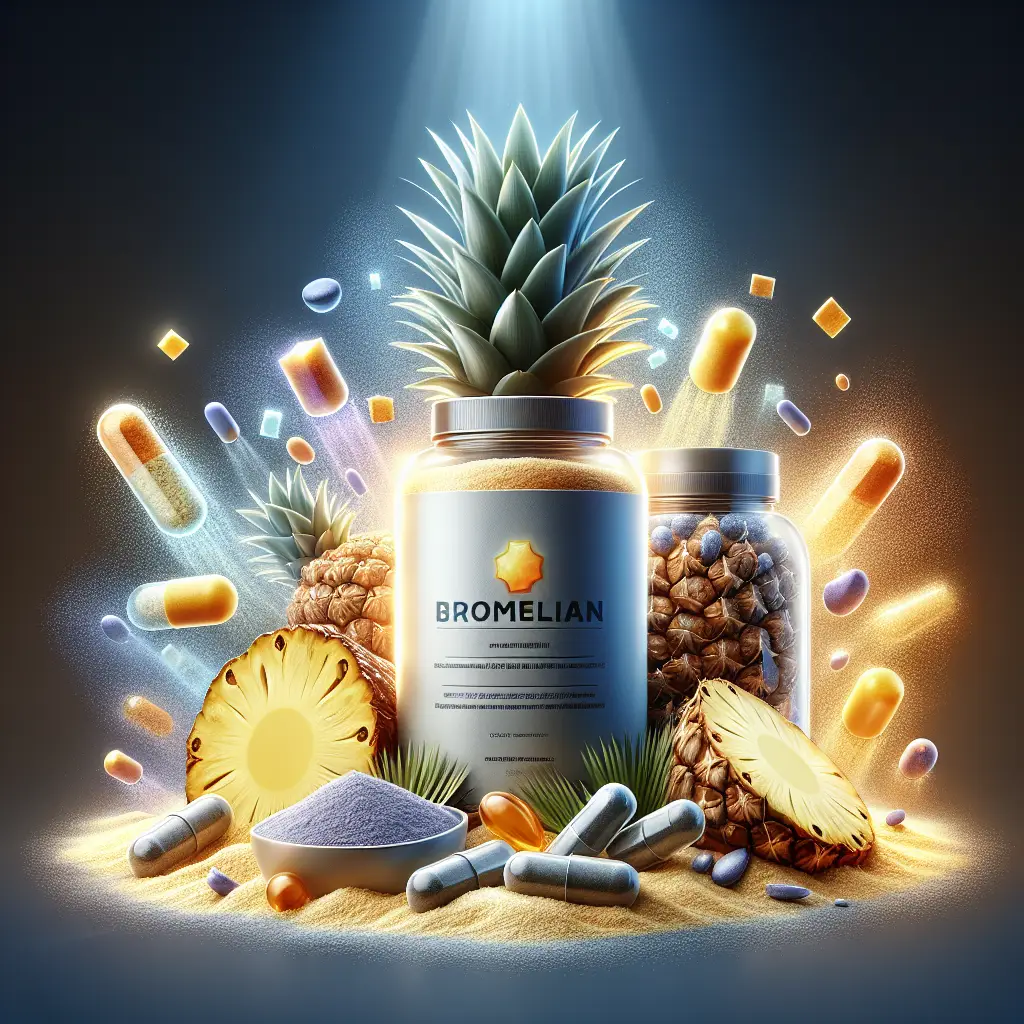Bromelian
Bromelain: An Overview
Bromelain is a group of digestive enzymes obtained from the stem and fruit of the pineapple (Ananas comosus). It has been widely recognized for its potential health benefits and is used in various supplements aimed at improving digestion and supporting recovery in athletic performance.
What is Bromelain?
Bromelain comprises several proteolytic enzymes that break down proteins into smaller peptides or amino acids. This enzyme is predominantly found in pineapples, especially in the stem, which contains higher concentrations. Bromelain offers a variety of health benefits and is recognized not only for its digestive-supporting qualities but also for its anti-inflammatory properties.
Benefits of Bromelain
- Anti-Inflammatory Effects: Bromelain is well-known for reducing inflammation, making it beneficial for conditions such as arthritis. It inhibits the release of inflammatory cytokines and mediators.
- Digestive Health: As a natural digestive aid, bromelain helps improve protein digestion, alleviating issues related to indigestion and bloating.
- Post-Exercise Recovery: Athletes often use bromelain to help reduce muscle soreness and accelerate recovery after intense workouts.
- Immune System Support: Bromelain has been shown to enhance immune function by promoting the activity of immune cells.
- Potential Anticancer Properties: Some studies suggest a possible role for bromelain in supporting cancer treatments, primarily through its ability to reduce certain tumor markers.
Types or Forms Available
Bromelain is available in various forms, including:
- Powder: Typically derived from the stem and often used for digestive health.
- Capsules/Tablets: Convenient for supplementation, commonly used for anti-inflammatory purposes.
- Liquid Extract: May offer faster absorption and is often used in topical applications.
How to Use Bromelain
Recommended dosages of bromelain can vary based on the intended use:
- For Digestive Support: 500-1000 mg before meals.
- For Inflammation Relief: 200-400 mg taken 2-3 times daily, preferably between meals.
- Timing: To aid digestion, take bromelain with meals. For anti-inflammatory effects, it's best taken on an empty stomach.
Side Effects and Considerations
Bromelain is generally considered safe when used appropriately. However, some individuals may experience mild side effects, including:
- Gastrointestinal discomfort (e.g., diarrhea, nausea)
- Allergic reactions, particularly in those allergic to pineapple or other bromeliad family plants.
- Potential interactions with blood-thinning medications; consult with a healthcare provider if on such medications.
Foods Rich in Bromelain
The primary natural source of bromelain is pineapple. Incorporating fresh pineapple into your diet is an excellent way to enjoy the natural benefits of bromelain.
Common Myths About Bromelain
- "Bromelain is only useful for digestive issues." - False. While it's renowned for its digestive benefits, bromelain has multiple health applications, including anti-inflammatory and immune-supportive effects.
- "All bromelain supplements are the same." - False. The effectiveness can vary based on the source and method of extraction; choose high-quality brands that specify their bromelain content.
- "You can get enough bromelain from pineapple alone." - False. While pineapple contains bromelain, supplementation may be necessary to achieve beneficial doses for specific health conditions.
Conclusion
Bromelain is a versatile enzyme with a range of health benefits, from aiding digestion to reducing inflammation. Its presence in pineapple makes it an accessible natural source, but for therapeutic effects, supplementation is often recommended. Understanding its proper use, potential side effects, and misconceptions can help individuals maximize its benefits as part of a healthy lifestyle.















